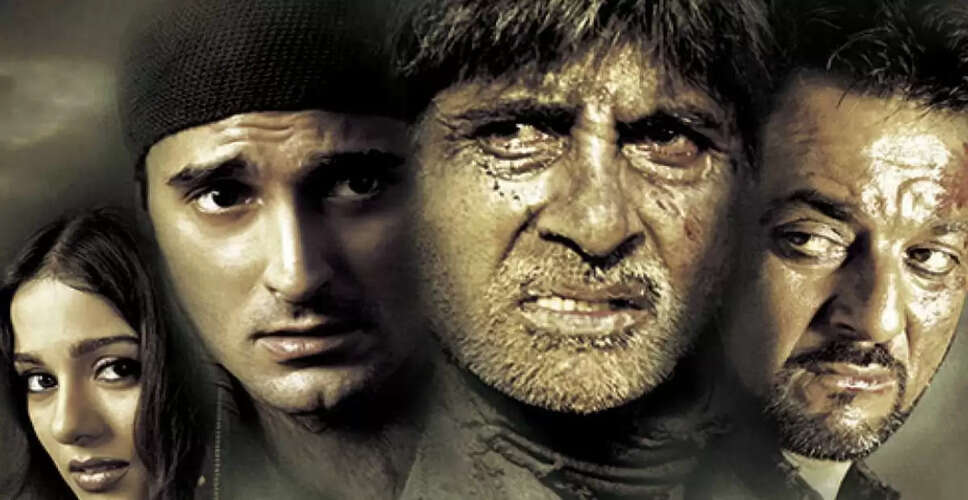Deewaar: Let’s Bring Our Heroes Home - A Gripping Tale of Adventure and Emotion

Exploring the Depths of Deewaar
Milan Luthria’s film, Deewaar: Let’s Bring Our Heroes Home, primarily unfolds within a prison camp located in Pakistan. Similar to Spielberg’s Schindler’s List, the barbed wire fence plays a crucial role, with prisoners desperately attempting to escape, resulting in bloody injuries.
The barbed wire serves as the main antagonist in Luthria’s rugged adventure, overshadowing the formidable Pakistani soldiers who add a unique flavor of toughness to the narrative.
Screenwriter Sridhar Raghavan, alongside Luthria and producer Gaurang Doshi, appears to have drawn inspiration from various prison escape films, including classics like The Great Escape and The Shawshank Redemption.
In essence, Deewaar leans more towards a Hollywood style than a traditional Indian narrative. The film’s pacing, with several events either rushed or overlooked, allows the editor to explore creativity rather than adhere strictly to conventional storytelling.
This Westernized approach to the adventure-drama comes at a cost. Deewaar often lacks the emotional depth that typically distinguishes Bollywood from Hollywood, presenting a more pragmatic and detached storyline about a son’s quest for a father he barely remembers.
Instead of focusing on the escape plot, the emotional core of Deewaar should have revolved around the 30-year separation between father Amitabh Bachchan and son Akshaye Khanna, which fails to resonate with the audience.
The film’s emotional disconnect is further exacerbated by Tanuja’s portrayal of the devoted wife, who does not convincingly embody a woman waiting three decades for her presumed-dead husband.
Several implausibilities threaten to overshadow the film’s adventurous spirit. Akshaye’s infiltration into Pakistan, his sudden confrontation with a soldier for information about his father, and the absurdity of his encounter with Sanjay Dutt during an action sequence reveal significant plot inconsistencies.
However, the escape sequences are expertly crafted. The tension within the prison camp is vividly depicted through the actors’ expressions and the film’s warm color palette, reminiscent of the works of directors like Sam Peckinpah.
The cinematography by Talat Jani and art direction by Jayant Deshmukh bring to life the contrasting settings of Karachi’s bustling streets and the harsh desert landscape of the Indo-Pak border, enhancing the film’s visual appeal.
Once again, Amitabh Bachchan’s performance is pivotal in tying the narrative together. As the leader of the prisoners, he showcases his commanding presence, delivering a performance that rivals his earlier works.
Sanjay Dutt adds a layer of comic relief to the intense drama, demonstrating his growth as an actor while sharing the screen with Bachchan without being overshadowed.
Akshaye Khanna maintains a cool demeanor, but the film fails to delve deeply into his character’s emotional turmoil.
The romantic subplot involving Khanna and Amrita Rao feels forced and detracts from the main narrative. Rao’s song, inserted awkwardly into the drama, lacks the intended impact.
Aadesh Shrivastava’s background score enhances the film, although the songs themselves seem out of place.
The climactic showdown in the desert culminates in a personal confrontation between the Indian soldier and the Pakistani jailor, suggesting a simplistic resolution to the Indo-Pak conflict.
Sanjay Dutt’s character, reminiscent of Bachchan’s roles in earlier films, expresses a desire to be buried in India, a wish that remains unfulfilled.
In a conversation, Amitabh Bachchan reflected on his long-standing friendship with Sanjay Dutt, highlighting their familial bonds and shared experiences in the film industry.
Bachchan described Deewaar as a physically demanding project, emphasizing its appeal to the masses and its unique narrative style that diverges from typical Bollywood formulas.
He dismissed claims of the film promoting anti-Pakistan sentiments, asserting that it portrays a sympathetic Pakistani character and promotes tolerance.
